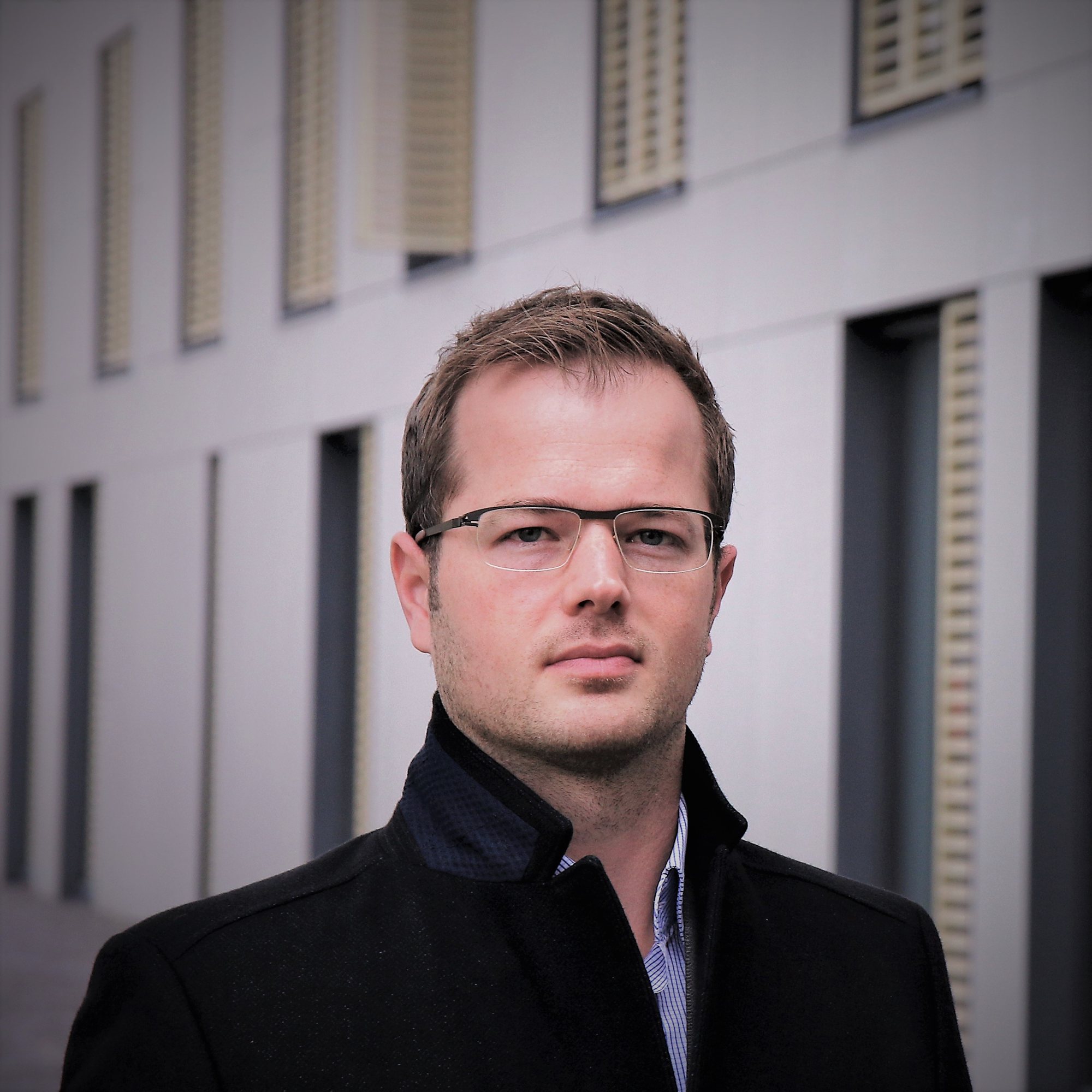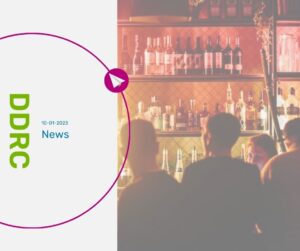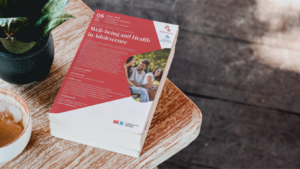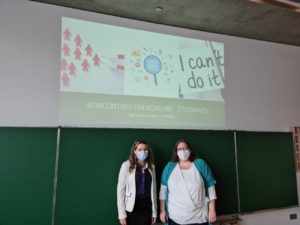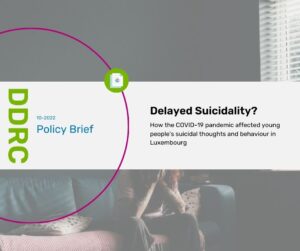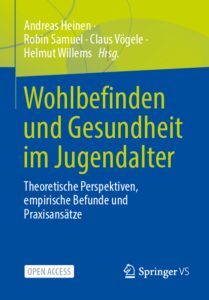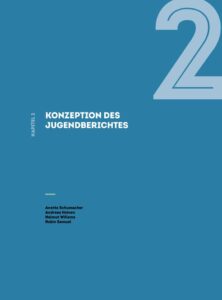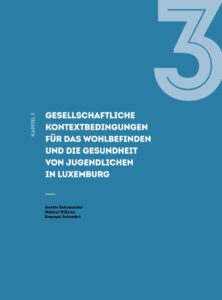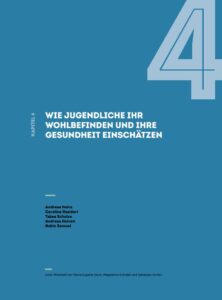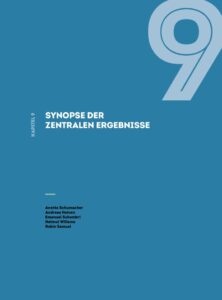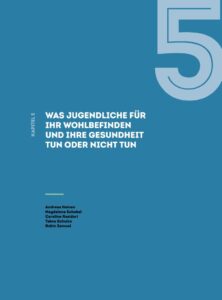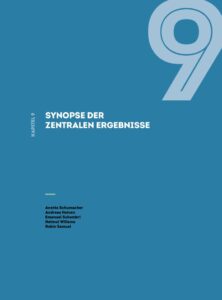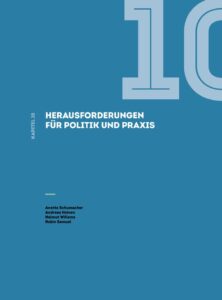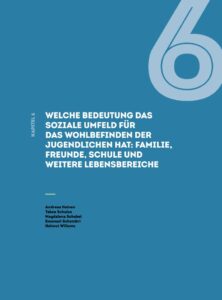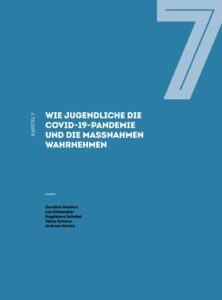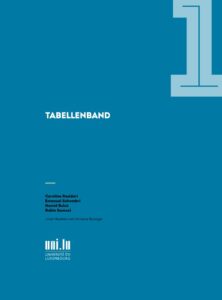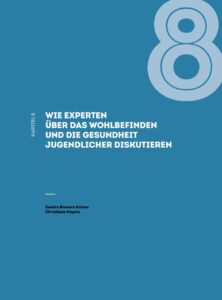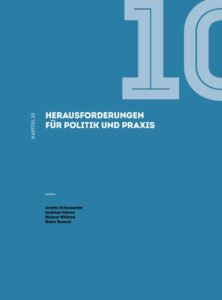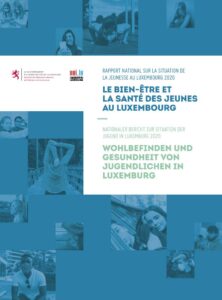Prof. Dr Robin Samuel is Associate Professor and Director of the Center for Childhood and Youth Research (CCY) at the University of Luxembourg.
2020 Youth Report
National Report on the Situation of Youth in Luxembourg: Well-being and Health
Alive and kicking? Luxembourg’s 2020 Youth Report provides scientific findings on the health and well-being of young people. The Youth Report identifies problems and approaches to action as a basis of information for politics, professional practice and science.
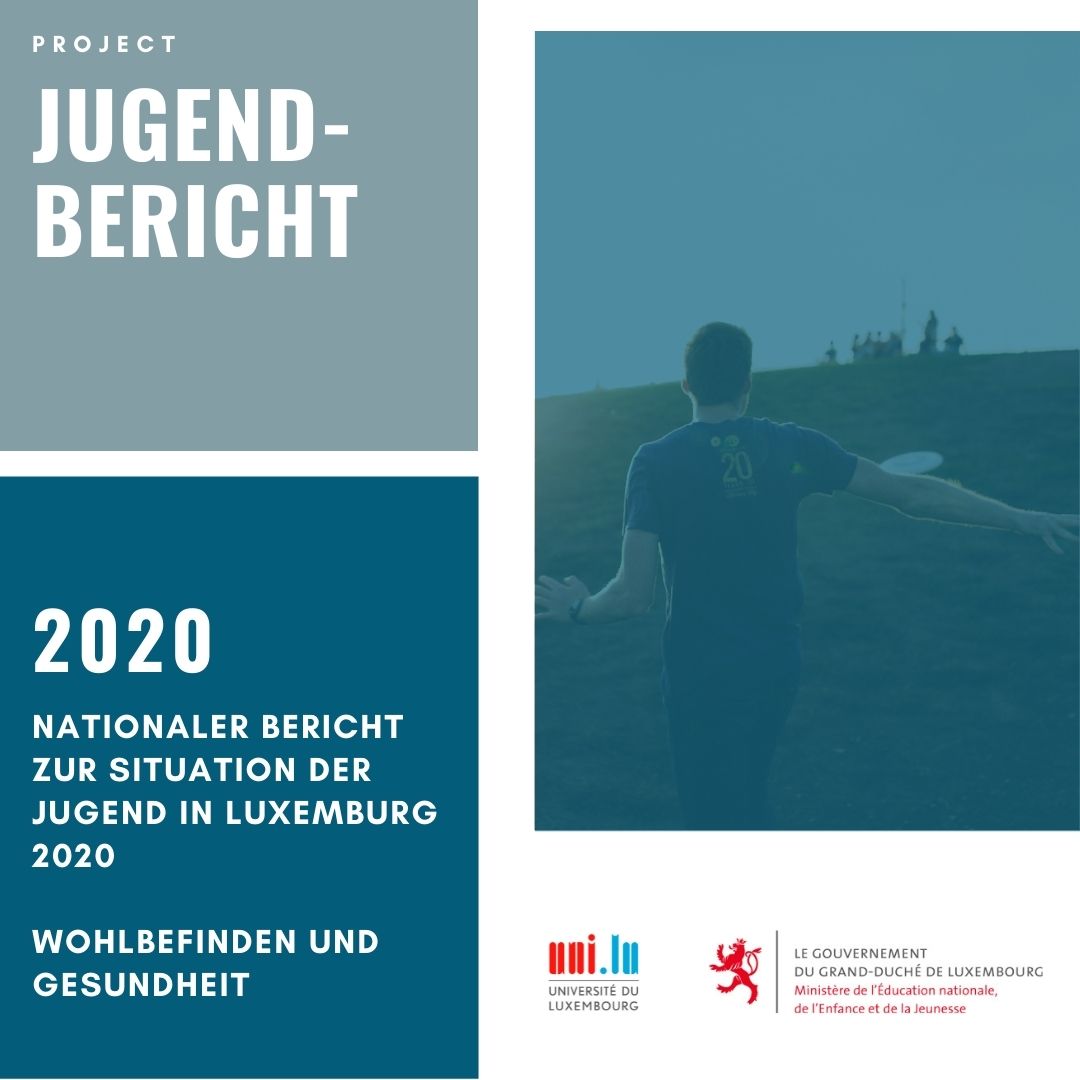
Jump to content
What is the 2020 Youth Report all about?
Luxembourg’s 2020 Youth Report is primarily concerned with the well-being of young people. In addition, the health of young people also plays an important role. The 2020 Youth Report analyzes the subjective well-being and health behavior of young people aged 12 to 29 in Luxembourg. In doing so, it takes up current findings in relation to the COVID 19 pandemic.
In addition to a differentiated description, a central goal of the evaluation strategy of the Youth Report is to identify factors that can be used to explain systematic distributions and differences in the health and well-being of adolescents.
These include not only the personal characteristics of adolescents but also external, social-structural and welfare-state conditions of growing up, such as the family, the neighborhood, the school, the peer group, leisure venues but also government programs and measures.
Depending on their characteristics, these factors can either have a protective function or pose a risk and have a positive or negative impact on the development of subjective well-being and on the health of adolescents. In this context, the focus is also on youth-specific coping strategies, which can represent an important resource.
Data basis and methodology
The 2020 Youth Report is based on a multidimensional concept of health and well-being that includes not only the physical but also the psychological and social dimensions. The empirical basis of the Youth Report is formed by various data sources: Administrative data and international survey data, which were analyzed by secondary analysis; survey data from the 2019 Youth Survey conducted at the Centre for Childhood and Youth Research (CCY) and the 2018 HBSC Survey; complementary qualitative studies: an expert survey on discourses on well-being and health in Luxembourg; and a qualitative survey of young people on their subjective views and assessments of well-being and health. Findings from the YAC study added reflections on the COVID-19 pandemic to the youth report.
Who contributed to the 2020 Youth Report?
For the Youth Report 2020, teams of youth researchers from a wide range of disciplines developed a differentiated research design with great care. They sifted through, collected, analyzed and interpreted comprehensive data sets, and discussed and wrote up results. The Youth Report 2020 was written by Dr. Sandra Biewers Grimm, Andreas Heinen, Dr. Andreas Heinz, Christiane Meyers, Dr. Caroline Residori, Prof. Dr. Robin Samuel, Emanuel Schembri, Magdalena Schobel, Tabea Sophie Schulze, Dr. Anette Schumacher, and Prof. Dr. phil. habil. Helmut Willems.
They were supported by Simone Charles, Moritz Höpner, Patrice Joachim, Sebastian Kurten, Nathalie Michel, Alessandro Procopio and Maria E. Sozio. They were also able to count on the dedicated collaboration of student assistants Lisa Gardin, Conny Godefroy, Caroline Koch, Xènia Loi, Isabelle Moris, Katia Pescatori, Christina Reisinger, Lisi Wagener, Isabelle Wagner and Marielle Baumgarten.
Cooperation partners were the University of Luxembourg and the Ministère de l’Éducation nationale, de l’Enfance et de la Jeunesse in Luxembourg (MENJE).
How and why is a youth report created?
The preparation of the Youth Report is derived from Article 15 (1) of the Youth Law of July 4, 2008: It states that every five years the relevant minister shall address a National Report on the situation of youth in Luxembourg to the Chamber of Deputies. To ensure that the youth reports are based on scientific findings, the Ministry of Childhood and Youth (MENJE) commissions researchers at the University of Luxembourg to prepare them. After several years of research, the researchers hand over the report to the ministry. In this way, the Youth Report identifies problems and suggests new approaches for action. The Youth Report is thus a basis for information and discussion for politics, professional practice and science. It offers a systematic preparation of the available knowledge about the life situation of young people in Luxembourg.


